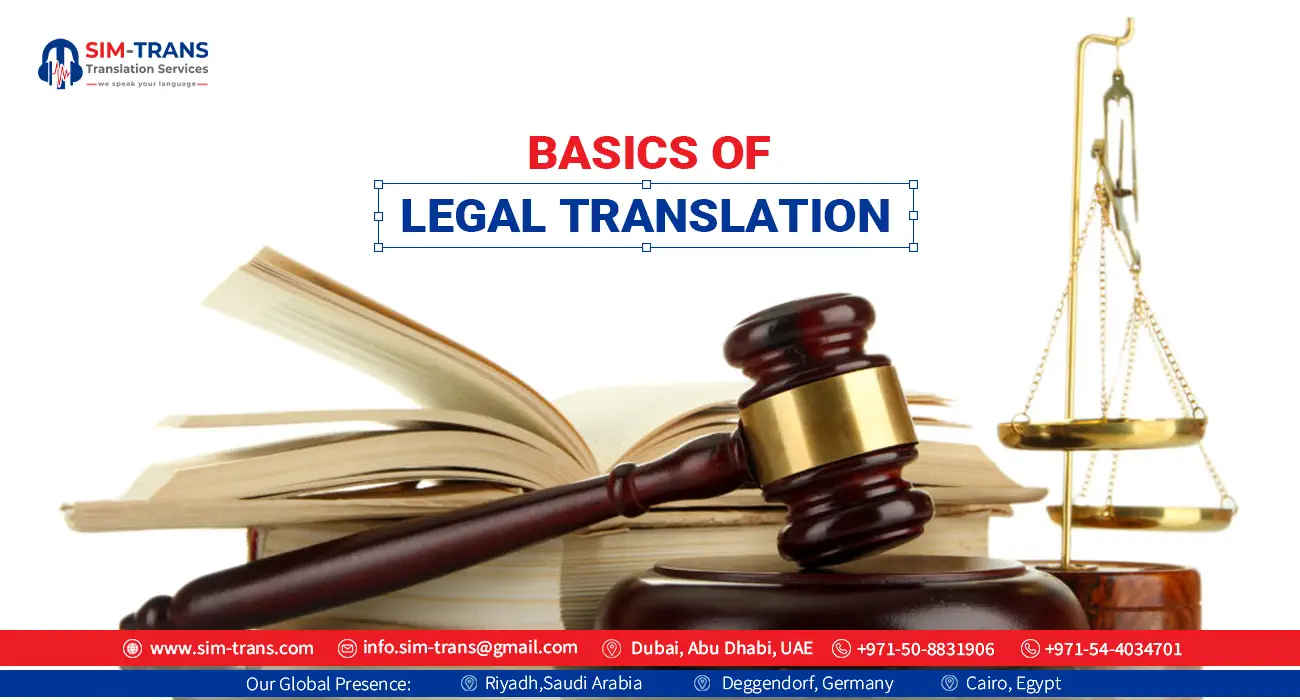Are you looking to break into the field of legal translation? Or you are already in the profession but looking to improve your skills. Look no further than Sim-Trans. This blog post is here to introduce you to the basics of legal translation.
We will explore the various types of legal documents, the challenges they can present, and the role of legal translators to help ensure accuracy and consistency. With this knowledge, you’ll be prepared to take on the wonderful world of valid translation.
Why Legal Translation is Important
Legal translation is crucial in ensuring accurate communication across language barriers within the legal field. The importance of legal and accurate translation cannot be underestimated, as even the most minor errors can have significant consequences. From contracts to court documents, accurate translation is necessary to preserve the meaning and intent of the original text.
Without proper translation, misunderstandings, legal disputes, and even miscarriages of justice can occur. Legal and accurate translation bridges the gap between different legal systems, allowing individuals and organizations to navigate the complexities of the law effectively.
Read More: The Role of Legal Translation Dubai in International Business Contracts
Types of Legal Documents that Require Translation
Legal and reliable translation is needed for a wide range of legal documents. Some common types include:
- contracts
- Agreements
- Patents
- Wills
- Court documents
- Legal correspondence
These documents are essential for individuals, businesses, and organizations to navigate legal processes and ensure accurate communication across languages. Each document type presents challenges, requiring translators to understand legal terminology, context, and cultural nuances deeply.
Challenges in Legal Translation
Legal and certified translation presents unique challenges that translators must navigate to ensure accurate and effective communication.
1. Legal Terminology
Legal documents are rife with specialized terminology that often has no direct equivalent in another language. Translators must not only understand these terms but also find appropriate equivalents or convey their precise meaning.
2. Cultural Differences
Legal systems are deeply rooted in the culture of a given country. Culturally specific concepts can be difficult to translate accurately without a profound understanding of the source and target cultures.
3. Ambiguity
Ambiguity is the enemy of legal and accurate translation. Legal documents must be unambiguous, but translating them can introduce unintended ambiguity. Translators must navigate these intricacies meticulously.
The Role of Legal Translators
Sim-Trans play a critical role in bridging the linguistic gap within the legal realm. We must be not only bilingual but also bicultural and legally knowledgeable. Some key roles they perform include:
1. Translating Documents
This is the most obvious role. Legal translators render legal documents from one language to another, ensuring that the translated text is legally accurate and culturally appropriate.
2. Interpreting
Legal interpreters assist in oral communication between individuals who speak different languages during legal proceedings, such as:
- Court Hearings
- Depositions
- Negotiations
3. Certification and Notarization
In some cases, legal translations must be certified or notarized to be accepted by government authorities or courts. Sim-Trans can provide these services to validate the authenticity of the translation.
Read More: Legal Translation Dubai: The Power of Expert Translators
Legal Documents and Their Types
The legal and accurate translation covers various documents, each with unique challenges. Contracts, agreements, patents, wills, court documents, and legal correspondence are just a few examples of documents requiring translation. Translators must be well-versed in legal terminology, context, and cultural nuances to convey these documents’ meaning accurately.
By understanding the different types of legal documents, translators can approach each project with the necessary expertise and ensure accurate and effective communication across languages.
Critical Skills for Legal Translators
To excel in legal and reliable translation, several vital skills are essential:
- Understanding legal terminology and concepts is crucial for accurately translating complex legal texts.
- Proficiency in source and target languages is vital to ensure clear and effective communication. Attention to detail and strong research skills are also necessary to navigate the intricacies of different legal systems.
- Familiarity with legal and accurate translation can significantly enhance productivity and maintain consistency throughout translation.
The Legal Translation Process
Once you deeply understand legal terminology and have honed your language skills, it’s time to delve into the legal and reliable translation process. This involves several steps, such as:
- Thoroughly analyzing the source document
- Researching relevant legal concepts
- Identifying cultural or linguistic nuances
Translators must then carefully craft the translation, ensuring accuracy and consistency throughout the document. Proofreading and editing are crucial to catch errors or inconsistencies before the final delivery.
Read Also: Why Legal Translations are Essential for Dubai’s Business and Legal Documents
Strategies for Effective Legal Translation
To ensure accurate and effective translation, a few strategies can be employed.
- First and foremost, utilizing sim-trans can significantly enhance productivity and maintain consistency throughout the translation process.
- Additionally, conducting thorough research on legal concepts, terminology, and cultural nuances is crucial.
- Translators should also prioritize clear and concise communication, ensuring the intended message is conveyed accurately.
By employing these strategies, legal translators can provide high-quality translations that meet the needs of their clients and bridge the gap between different legal systems.
Tools and Resources for Legal Translation
To excel in the field of translation, it is essential to have access to the right tools and resources. One invaluable resource for legal translators is specialized dictionaries and glossaries focusing on legal terminology. These can help ensure accurate and consistent translation. Additionally, online research databases, such as legal encyclopedias and law libraries, can provide valuable information on specific legal concepts and systems.
Tools, like translation memory software, can also be incredibly helpful in maintaining consistency throughout translations. Legal translators can enhance their productivity and deliver high-quality translations by utilizing these tools and resources.


